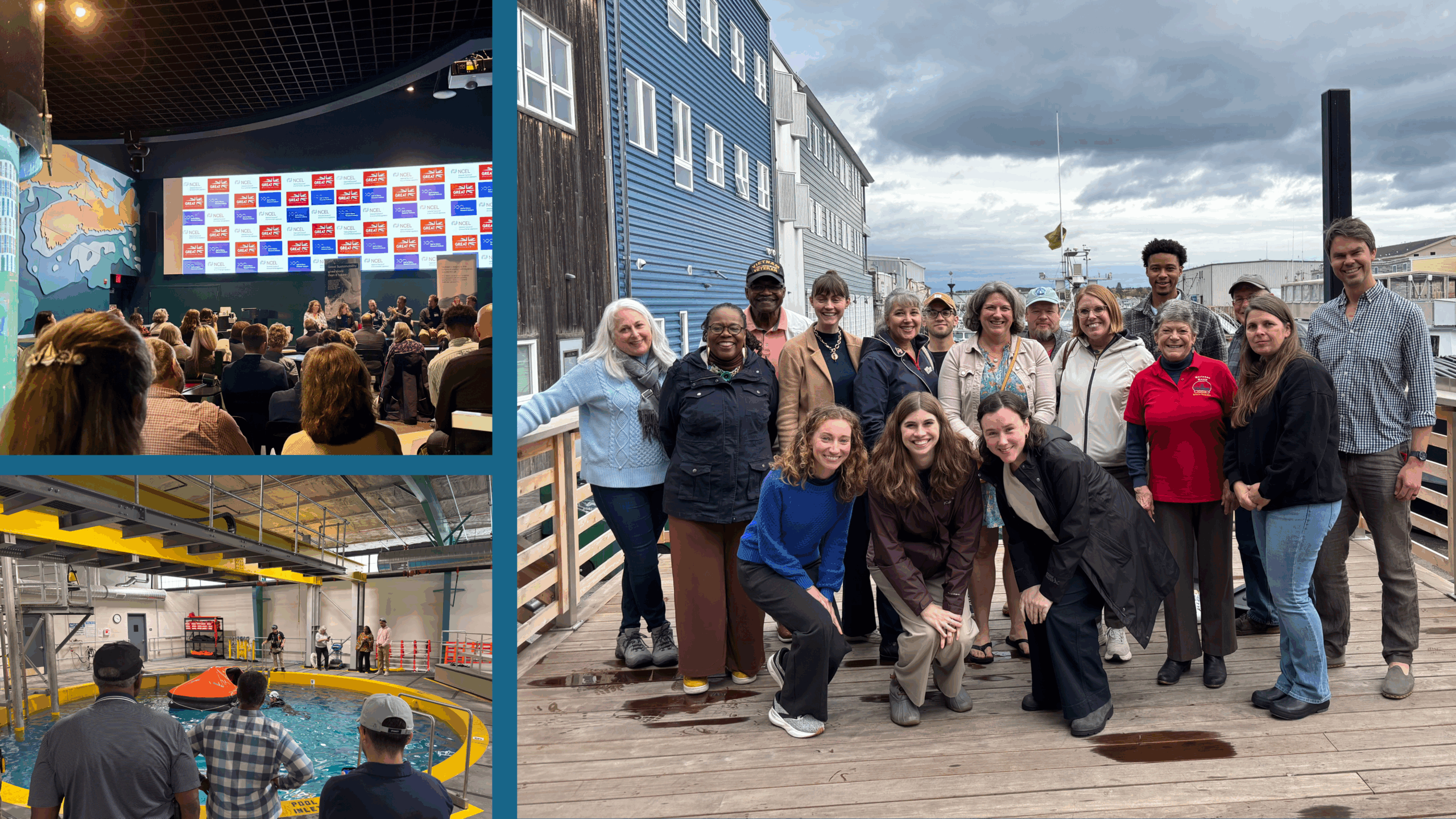
Blog
New England Blue Economy Tour Recap: State Leaders Chart Coastal Solutions
October 23, 2025
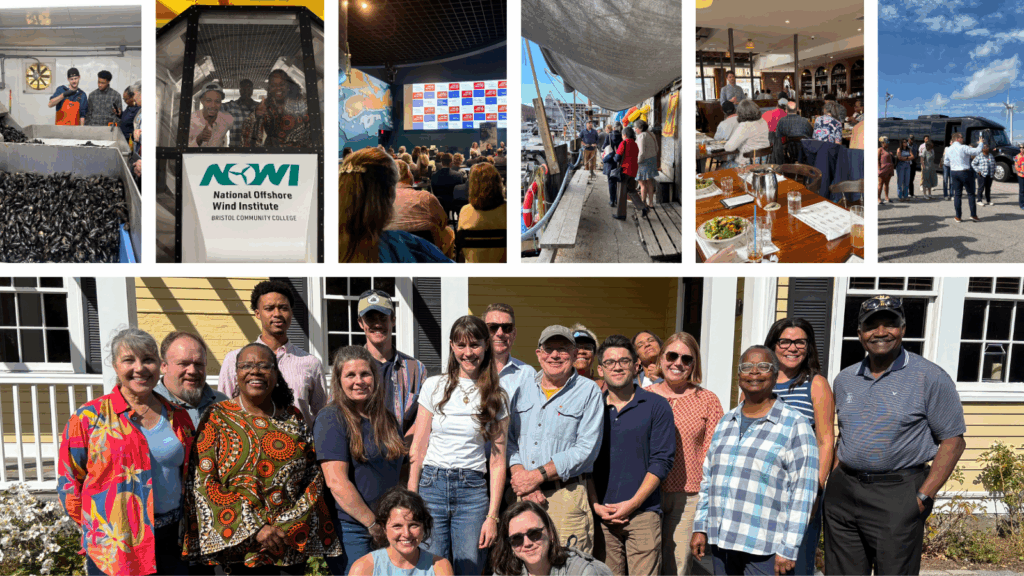
Overview
This October, over 20 state legislators and staffers from nine states joined NCEL for a three-day tour across New England, exploring innovations and policy solutions within the growing Blue Economy sector. Through expert panels and hands-on site visits, participants explored solutions they can take back to their home states related to working waterfronts, offshore wind infrastructure, climate resilience, and sustainable aquaculture.
- Why the Blue Economy Matters: Federal funding uncertainties, compounded by the impacts of climate change, rapid coastal development, and waterfront gentrification, make it all the more difficult for states to drive sustainable development while preserving critical marine and coastal ecosystems. Investing in the Blue Economy — which encompasses a wide range of economic activities that depend on ocean and coastal resources — can support economic growth while protecting the long-term health of the ocean and coasts.
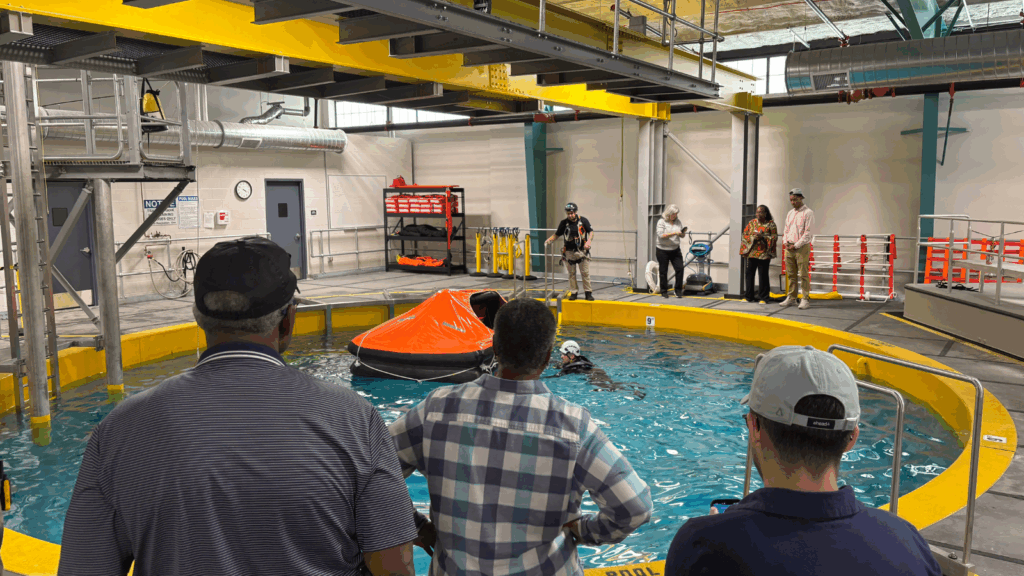
Day One: Ports and Working Waterfronts
Day One of the New England Blue Economy Tour centered on the intersection of maritime industries, offshore wind, and coastal policy. The Tour kicked off in Providence, Rhode Island, where Waterson Terminal Services CEO Chris Waterson highlighted the Port of Providence’s diverse industries and long-term planning, as well as the climate challenges facing water-dependent industries. Attendees also saw offshore wind infrastructure firsthand before taking part in a waterfront policy discussion with the Rhode Island Waterfront Commission, Department of Environmental Protection, Coastal Resources Management Council, and East Providence Mayor Bob DaSilva.
Later in the day, attendees visited New Bedford, Massachusetts, where Mayor Jon Mitchell and New Bedford Ocean Cluster Director Jennifer Downing showcased the city’s leadership in fisheries and offshore wind, and how the Cluster works to support the nation’s only federally designated Ocean Tech Hub. The day concluded with a visit to Bristol Community College’s National Offshore Wind Institute, where students demonstrated turbine training simulations and discussed workforce development opportunities.
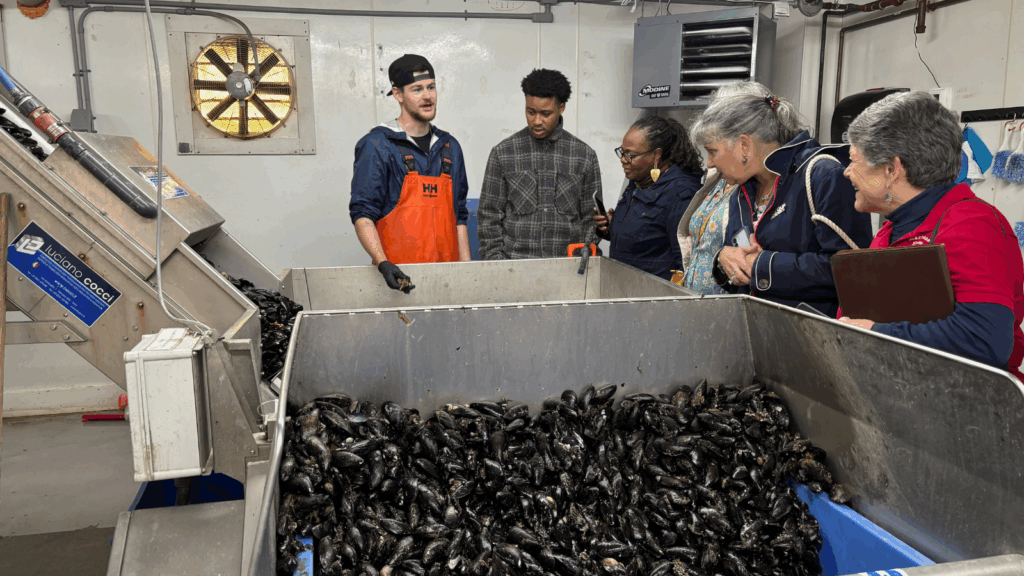
Day Two: Coastal Resilience and Mariculture
Day Two of the Tour focused on coastal resilience and sustainable mariculture, beginning with a visit to Stone Living Lab’s Living Seawalls in Boston, where Co-Directors Joe Christo and Katherine Dafforn shared how existing infrastructure can be adapted to protect waterfronts from sea-level rise and extreme weather. The Tour then traveled up to Portland, Maine, where attendees joined Luke’s Lobsters co-founder Ben Conniff for a lunch-time discussion on climate impacts to fisheries, as well as the company’s efforts to reduce carbon footprints and mentor future lobster harvesters. Afterwards, the group toured Bang’s Island Mussels, a climate-positive sea farm cultivating mussels and kelp — highly sustainable food sources that also improve water quality and marine biodiversity.
That evening, NCEL co-hosted a Blue Economy Panel and Reception with the Gulf of Maine Research Institute (GMRI) and British Consulate-General Boston, where over 65 attendees learned about Blue Economy innovations and opportunities, and how lawmakers can work across sectors to promote sustainable policy. Speakers included Maine State Senator Jill Duson, UK Consul General to New England David Clay, Nathan Johnson of Ocean Renewable Power Company (ORPC), Heather Goodale of the British Embassy, Mike Conathan of the Upwell Collaborative, Rhiannon Hampson of GMRI, and Charlie Walsh and Jon Steuber of Seascale.
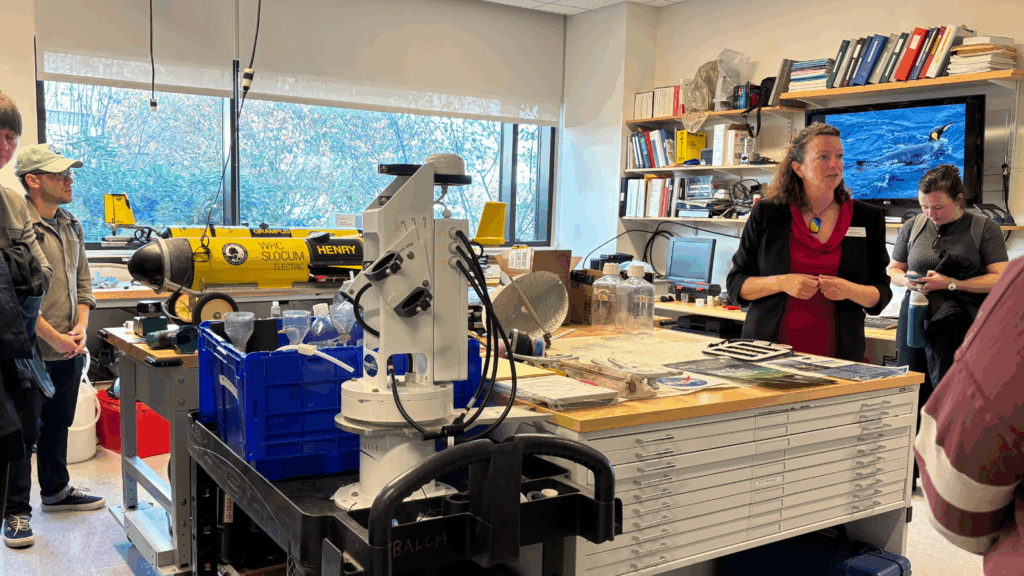
Day Three: Ocean Science and Action
On the final day, attendees toured Bigelow Laboratory for Ocean Sciences in East Boothbay, Maine, where researchers and senior staff guided participants through the facility and shared research insights on global aquaculture, ocean forecasting, and working waterfront preservation. The Tour culminated with a hands-on workshop at Bigelow Laboratory, where lawmakers broke into groups to explore state-specific Blue Economy challenges. Breakout groups were led by speakers featured throughout the Tour, providing lawmakers the opportunity to learn and collaborate on legislative solutions for fisheries permitting, Blue Economy Task Forces, working waterfronts, and more.
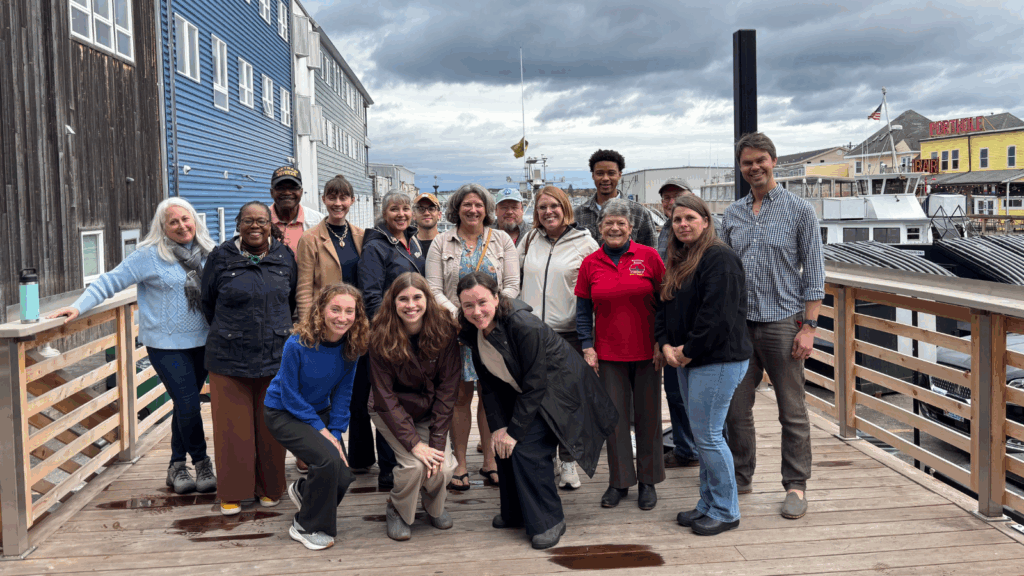
Looking Ahead
New England is just one regional hub for the Blue Economy — advancements are being made across the Gulf, the West Coast, and the Southeast. With momentum building nationwide, attendees are bringing home valuable lessons to help grow the sustainable Blue Economy in their own states. As the 2026 legislative session kicks off, NCEL will continue to elevate state leadership, foster collaboration, and provide opportunities for lawmakers across the country to sustain coastal economies and ecosystems.
Learn more about policy developments and upcoming opportunities with NCEL on our News & Events webpage. And visit our website to learn more about the policy issues we work on.